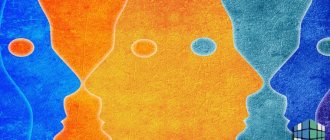Life philosophy is a person’s system of views. The search for answers to the main questions in life, what is its meaning, why, what and how to do, does not stop. Since ancient times, the minds of philosophers have been pondering this. Dozens of teachings have been formed, but people still ask themselves these questions.
Philosophy of life - basic ideas
The philosophy of life united various directions, united by common ideas. It arose as a reaction to outdated philosophical traditions determined by rationalism. The ideas of the philosophy of life are that being is the fundamental principle, and only through it can something be comprehended. All rational methods of understanding the world are in the past. They are being replaced by irrational ones. Feelings, instincts, faith are the main tools for comprehending reality.
What is life
Movement in space and time, during which personal development occurs, experience, skills and knowledge are acquired, energy is expended on interaction with other individuals - this is what life means.
Types of concept
Life is a concept that can be viewed from different points of view:
- Physical. A continuous process, which is accompanied by the accumulation and dissipation of energy in order to increase or decrease chaos in the system - this is real life, as the science of physics tells in detail.
- Biological. According to this view, social existence is a special form of living matter, in each cell of which physical and chemical processes take place. The main criteria of a developing organism are: growth, metabolism, reactions to stimuli and reproduction. As long as a person breathes, he continues to live.
- If you look at this term from a psychological or cultural angle, you can find more than 7 billion definitions, since every adult and child interprets this phenomenon in their own way.
The concept of life in philosophy
For more than 30 centuries, philosophers and prophets from different nations of the world have been striving to understand life, to understand what it is and what its boundaries are. Spinoza, Socrates, Diogenes, Antisthenes and other sages reduced their thoughts to the fact that the foundation of the existence of all life on earth comes down to the search for the purpose of existence.
Important! Therefore, life in philosophy is a kind of key to determining the main motives and paths of development of the world, as well as the self-improvement of a person through his meaningful creative activity
Benedict Spinoza
Often, in order to understand this term, ancient treatises used a comparison with death and non-existence. Life as being is an outdated philosophical definition.
Additional Information. In modern times, rational knowledge of the world has been replaced by irrational views. Faith, instincts and feelings have become the main tools that allow us to comprehend real existence.
Irrationalism and philosophy of life
Irrationalism is based on the uniqueness of human experience, the importance of instincts and feelings, as opposed to rational knowledge. It, like romanticism in literature, became a reaction to rationalism. Reflected in the historicism and relativism of Wilhelm Dilthey. For him, all knowledge was conditioned by a personal historical perspective, so he asserted the importance of the humanities.
Johann Georg Hamann, a German philosopher, rejected the process of reflection and sought truth in feeling and faith. Personal confidence is the final criterion of truth. His colleague in the literary group Sturm und Drang, Friedrich Jacobi, exalted the certainty and clarity of faith at the expense of intellectual knowledge.
Friedrich Schelling and Henri Bergson, concerned with the uniqueness of human experience, turned to intuitionism, which “sees things invisible to science.” Reason itself was not annulled, it lost its leading role. Instinct is the engine that underlies existence. Pragmatism, existentialism, irrationalism are a philosophy of life that has expanded the understanding of human life and thought.
History of development
Initially, philosophy was the main science, from which individual disciplines subsequently began to separate. The same thing happened with psychology. Both disciplines appeared at the same time, but throughout their existence, psychology was part of philosophy and became a separate branch of scientific thought only in the 19th century.
For the first time, Heraclitus spoke about studying the soul, who believed that it was difficult to study. He divided society into two groups:
- wet - less noble individuals, prone to sins;
- dry - have noble qualities.
Psychological doctrine developed within the framework of materialism. The next to develop this idea was Democritus, who proposed the theory of atoms. He believed that the body consists of small particles, and the soul consists of even smaller particles. He considered the soul as the motive of life and recognized its mortality, which comes with the death of the carrier.
Socrates suggested that the soul is an echo of the divine mind that should be listened to. Socrates contrasted soul and body. The soul is immaterial, invisible and immortal like the Gods. Therefore, with the death of the body, the soul continues to exist. Socrates proposed an idealistic understanding of the soul, which was later developed.
This theme was continued by Plato, who believed that the soul is destined for every creature even before its birth. Before connecting with the body, she is in the world of ideas and knows everything. But having united with the body, she forgets knowledge. Plato divided psychological phenomena into:
- mind - located in the head;
- will – located in the chest and is responsible for the fulfillment of desires;
- base desires - located in the lower abdomen and are common to people and animals;
For the wise, these three types of phenomena are in harmony. To achieve it, a person must improve himself. The struggle with oneself in the process of self-improvement is expressed in dreams.
The pinnacle of development of ancient psychology was the work of Aristotle. He believed that the soul is part of the human body, and not brought from the outside. The soul gives meaning to existence, and the body serves to fulfill a purpose.
In the Middle Ages, psychology was greatly influenced by religion, so the soul was associated with the divine principle and faith.
The meaning of human life - philosophy
The problem of the meaning of life in philosophy has been and remains relevant. Philosophers of different directions have been looking for answers to the questions, what is the meaning of life and what makes life meaningful over the centuries:
- Ancient philosophers were unanimous in the opinion that the essence of human life lies in the desire for good and happiness. For Socrates, happiness is equal to the improvement of the soul. For Aristotle - the embodiment of human essence. And the essence of a person is his soul. Spiritual work, thinking and knowledge lead to the achievement of happiness. Epicurus saw meaning (happiness) in pleasure, which he represented not as pleasure, but as the absence of fear, physical and spiritual suffering.
- In the Middle Ages in Europe, the idea of the meaning of life was directly related to traditions, religious ideals and class values. There is a similarity here with the philosophy of life in India, where repeating the life of ancestors and maintaining class status are key.
- Philosophers of the 19th and 20th centuries believed that human life is meaningless and absurd. Schopenhauer argued that all religions and philosophies are only attempts to find meaning and make a meaningless life bearable. Existentialists, Sartre, Heidegger, Camus, equated life with absurdity, and only a person could give it some meaning through his own actions and choices.
- Modern positivist and pragmatic approaches argue that life takes on the meaning that is important for an individual within the framework of his reality. It can be anything - achievements, career, family, art, travel. What a particular person values his life for and what he strives for. This philosophy of life is very close to many modern people.
Stages of life
At each stage of life, a person has new goals and objectives. Any passed age stage of personality development determines further steps and forms a plan for achieving success in the next stage. Depending on how successfully each stage of life is overcome, the individual develops a feeling of fullness of life, a sense of self-confidence and satisfaction with the path traveled.
Infancy (first year of life)
At the beginning of life, the main task of an infant is to develop basic trust in others. After all, it is this criterion that will allow an already matured person to feel confident in the future and perceive the world as a safe and stable place, which is favorable for further development. The degree to which a child develops trust in other people directly depends on how his mother treats him.
There is an opinion that newborn babies do not understand or realize anything. This is wrong. Of course, they will not be able to remember the first years of their life. But most of the information will be fixed on an emotional level.
Early childhood (2–3 years of age)
At the second stage of life, the individual strives to achieve partial independence and self-control. The child tries to abstract himself from parental care and learn to understand the world.
He learns to eat, dress and shower independently, allowing his mother to be present, but not allowing direct participation. Encouraging such actions builds confidence, self-esteem and importance, self-control and self-respect in the child.
Preschool age (4–6 years)
This stage of life carries with it the formation of preliminary goals and objectives for future life. It is at the age of 4–6 years that a child first thinks about choosing a profession and begins to realize that he is treated as an adult, meaningful person.
Those who succeed are those who feel that their independent actions are encouraged by their elders, and their decisions are respected and not ridiculed. The child must learn to be responsible for his words and actions, and understand that every decision will one way or another affect his future life.
The poet Lev Iovlev wrote: “When a man is driving his cart, what gives him strength is the understanding of why and where.”
School age (7–12 years)
At this age, children’s abilities for logical thinking and self-discipline increase, as well as the desire to interact with others within the framework of permitted rules and regulations. The young personality is absorbed in trying to figure out where everything comes from and what it is needed for. This life stage forms an understanding of one’s own usefulness and competence.
The child realizes opportunities and seeks his place among his peers. There is an interest in further development and training. It is at this stage that the growing individual needs the attention of his family. After all, it is parents who help children find important personal and social goals that can have a positive impact on society. And the feeling of necessity builds confidence in yourself and your future.
Youth (13–19 years old)
Adolescence is one of the most difficult stages in personality development. The young man is faced with a huge number of social demands and does not understand which direction he should move now. The main task is to form all the information available by this time about oneself and one’s capabilities into a single whole and include it in a full-fledged picture of social life.
A successful way out of a youth crisis is keeping your own promises and wishes related to your future life. Parents and close friends can provide enormous assistance in this, who will push a person to decisive action with their loyalty, faith and support.
Philosophy of life and death
The problem of life and death in philosophy is one of the key ones. Death as a result of the process of life. Man, like any biological organism, is mortal, but unlike other animals, he is aware of his mortality. This pushes him to think about the meaning of life and death. All philosophical teachings can be divided into two types:
- There is no life after death
. After death there is no existence; along with a person’s body, his soul and his consciousness perish. - There is life after death
. A religious-idealistic approach, life on earth is a preparation for the afterlife or reincarnation.
The expediency of practical psychology.
There can be many answers. And here everything depends on the psychologist’s individual understanding of his task.
So, for example, if this concerns the client, this may be the achievement of some specific results in his life, for example, getting a job, getting rid of addictions, solving personal problems, problems in the family, at work, etc.
This can also be a solution to problems of a person’s personal fulfillment, depressive and stressful conditions, neuroses, etc.
This can also be a solution to global existential problems of clients, if there is such a request.
It could be a combination of all of the above (which is most likely), and much more.
It is very important to understand that the solution to the listed problems in the interaction between a psychologist and a client concerns both equally. This is important to understand for the reason that a psychologist is also a person with many of his own problems and tasks, and is not at all obliged (and in most cases is not) to be some kind of perfect person who has completely solved all his problems
This is important to understand for the reason that a psychologist is also a person with many of his own problems and tasks, and is not at all obliged (and in most cases is not) to be some kind of perfect person who has completely solved all his problems. What distinguishes a psychologist from a client is a set of certain professional skills and knowledge, which in certain cases can lead to a certain result acceptable for the psychologist-client relationship
What distinguishes a psychologist from a client is a set of certain professional skills and knowledge, which in certain cases can lead to a certain result acceptable to the psychologist-client relationship.
But what should this result be? And is there something, some universal criterion that allows us to generalize the tasks of psychology? Of course, the results of a psychologist’s work (even based on stated requests) in their purely applied aspect can differ quite significantly.
Nevertheless, there is one important general criterion - all psychological work comes down to one task - improving the client’s quality of life, and I would add that this equally applies to the psychologist.
Books about the philosophy of life for self-development
Fiction can be an excellent source of philosophical enlightenment. Not only scientific or popular science books written by philosophers introduce new philosophical ideas and give impetus to spiritual development. Five books that present the philosophy of human life:
- "Stranger"
. Albert Camus. The book is fiction; in it the author managed to reflect the basic ideas of existentialism, even better than in philosophical treatises. - "Siddhartha"
. Hermann Hesse. This book will take your thoughts from worries about the future to thoughts about the beauty of the present. - "The Picture of Dorian Grey"
. Oscar Wilde. A great book about the dangers associated with pride and vanity, in it the reader will find a lot of self-reflection and sensory exploration. - "Thus Spoke Zarathustra"
. Friedrich Nietzsche. Nietzsche built one of the most original and radical philosophies in his entire history. His ideas continue to send shock waves through the Christian community. Most people reject Nietzsche's slogan that "God is dead", but in this work Nietzsche actually explains this statement and voices interesting ideas about life on Earth. - "Transformation"
. Franz Kafka. One day, waking up, the hero of the story discovers that he has turned into a large insect...
Interrelation of disciplines
These two industries have common and opposing features. Due to its long development as part of philosophy, psychology often turns to it when solving any problems. Philosophy gives a general idea of society, and psychology works with the problems of a specific person. She influences society with ideas and changes it. Psychology records the problems that exist in society and develops ways to solve them. Both branches are pedagogical in nature, but differ in the degree of distribution.
Both disciplines rely on experience. Philosophy is based on social and personal experience. A philosopher cannot put forward theories without his own experience. Psychology can help based on social experience. This science is based on the experiences of other people who have faced similar problems. And based on the analysis of methods that helped in similar situations, they use them again.
Psychologists turn to philosophers when faced with serious questions. In the 21st century, the main problems of modern society are: self-realization, search for oneself and the meaning of life. Philosophers deal with all these issues, so it is impossible to solve these problems without turning to them.
The joint work of psychologists and philosophers is fruitful. Together they solve the problem of understanding the world around them. They study the nature of human intelligence, the ways of its development in children.
Many research authors write on topics intermediate between these two sciences, since the study of one of them is impossible without the other. Such works include studies by V. Frankl or K. Rogers.
Psychology examines the biological and psychological aspects of people, the reactions occurring in the body and the mechanisms of action. Philosophy considers a person as a person and provides general information about his essence and principles of existence. It highlights the details of society that are distinctive during a certain period of human development. It is not individual, but social, and therefore does not provide significant assistance to a specific individual in solving psychological problems.
Films about the philosophy of life
Directors turn to the theme of human life in their films. Films about the philosophy of life that will make you think:
- "Tree of Life"
. Directed by Terrence Malick. This movie raises millions of rhetorical questions about the meaning of life, the problem of human identity. - "Eternal Sunshine of the Spotless Mind"
. The film by Michel Gondry, released in 2004, is a kind of philosophical teaching about how to live your life, accept mistakes and not forget about them. - "Fountain"
. A fantastic movie from Darren Aronofsky will show new interpretations of reality.
It’s different for everyone, but I don’t have a destiny invented by someone in heaven.
There are only cause-and-effect relationships, actions performed and a little karma from this or past life. Events in my life depend on my choice and I myself am responsible for everything that happens to me. This doesn't mean that I don't believe in God. Of course, I believe in him, I read prayers, meditate and often turn to the higher powers in my heart. Sometimes I visit churches and temples, I believe in the power of saints and the existence of guardian angels, as I have seen them more than once in my dreams and felt their strength and help in real life. My universe always takes care of me, and I love it and trust it completely.
Everything has its time.
I often hear from friends that it’s time for me to get married or have children “at least for myself”…. Oh, in part, I even agree a little with this opinion for one reason or another. At the age of 28, my mother already had two children, but I still can’t “settle” in one place and start a family. Well, everyone has their own deadlines, and the last thing in the world I want to be like someone else. Now I have other life goals and my prioritization is such that my husband and children are not in first place. But, as I already wrote above in the first paragraph, my freedom of choice, and if I want to change something, I can do it at any time.
Rene Descartes
Rene Descartes, a French philosopher and sociologist, believed that the main thing in life is the principle of moderation, according to which one should not rush to extremes, make hasty decisions, it is necessary to think everything over rationally and find the right path. According to his philosophy, the old is easy to destroy, but before doing this, you need to think about the consequences. The natural scientist respected the traditions and customs of various peoples, this speaks of his high moral qualities. Descartes' life rule stated the desire to change, first of all, oneself, and not the world around him. After all, man is the highest mind, and only he can control his thoughts and rule over them.
Rene Descartes. Author Franz Hals
Definition of concepts
Philosophy and psychology are closely related sciences. Psychology has two directions: knowledge and the totality of human traits that make up his character. In the first meaning, it is a science that studies the mechanisms and patterns of mental activity of society. In the second meaning, it denotes the mental processes occurring in the human body that make it individual.
Philosophy is the science of the general laws of development of nature, society and man. It reflects the state of society at a certain point in time and develops with it. Therefore it is not permanent. In different historical eras, currents arise in it, on the basis of which schools appear, and philosophers are divided in opinion.
Jean-Paul Sartre
The representative of atheistic existentialism, Jean-Paul Sartre, viewed human existence as a meaningful, free activity. However, in the sphere of labor economic participation, a person does not belong to himself, he does not lead an authentic existence. Life itself, according to Sartre, is a consistent chain of self-denials in which freedom is realized, and it is precisely this that is the only basis for the value and non-value of human actions. Freedom places unconditional responsibility on society, as a result of which it is expressed in a critical attitude towards the world and people.
Jean-Paul Sartre. By Moshe Milner.











